- Le Pôle
- Programmes
- Entreprises
- Research Center
- International
- Vie étudiante
- Presse
- Agenda

Les membres de l’axe de recherche collaborent autour des thématiques de recherche suivantes :
Nos recherches contribuent à l’élaboration de méthodes efficaces d’exploitation et d’utilisation des sources d’énergie. Cela implique le développement de stratégies et de processus pour la gestion efficace et l’optimisation de la production, du stockage et de la consommation d’énergie. En outre, nos recherches visent à explorer des approches novatrices permettant aux entreprises de fonctionner de manière durable dans l’ensemble du secteur de l’énergie.
Notre recherche vise à identifier les facteurs qui déterminent un comportement éthique, responsable et vertueux au sein des entreprises. Elle vise également à élucider les mécanismes sous-jacents qui favorisent l’innovation dans les technologies et les pratiques énergétiques caractérisées par le respect de l’environnement et la responsabilité sociale.
Nos recherches portent sur la promotion d’une consommation socialement responsable, encourageant les individus et les organisations à faire des choix respectueux de l’environnement en matière d’utilisation de l’énergie. En outre, elle s’intéresse aux besoins et aux comportements des consommateurs et des citoyens vulnérables, en particulier dans le contexte des énergies renouvelables. Il s’agit notamment de garantir un accès équitable et de répondre aux préoccupations des groupes marginalisés.
Nos recherches se focalisent sur le développement de modèles de financement et de tarification adaptés et de mécanismes de marché spécifiques aux énergies renouvelables. Cela implique la création de stratégies de tarification équitables et efficaces pour soutenir la pénétration des technologies d’énergie renouvelable et de récupération (Enr&R) dans le mix énergétique. En outre, nous nous attachons à quantifier et à améliorer l’impact environnemental et social des entreprises, ainsi que leurs pratiques en matière d’information.
Notre recherche vise à évaluer et à améliorer l’acceptabilité et la perception sociale des processus innovants de production d’énergie. Cela englobe la perception et l’acceptation de ces technologies par les audiences concernées. En outre, notre objectif est de faciliter la participation active de diverses parties prenantes, y compris le large public, les entreprises et le gouvernement, dans les discussions et les processus de prise de décision liés aux processus de production d’énergie innovants.
L’Axe de recherche « Efficacité énergétique et marchés socialement responsables » organise périodiquement des séminaires transdisciplinaires croisant les perspectives des sciences de gestion et des sciences de l’ingénieur, et des ateliers de discussion d’articles académiques. L’Axe organise aussi des tables rondes transdisciplinaires qui réunissent des chercheurs en gestion et en sciences de l’ingénieur et des managers.
L’équipe d’enseignants-chercheurs Efficacité énergétique et marchés socialement responsables
L’ensemble des travaux des enseignants-chercheurs Efficacité énergétique et marchés socialement responsables
Stéphanie Lacour; Véronique Aguié-Béghin; Brigitte Chabbert; Mario Scheel; Damien Thomas; Pascal Clain
Capillary properties of natural fibre assembly for evaporative purposes Article de journal
Dans: Colloids And Surfaces A-Physicochemical And Engineering Aspects, vol. 724, p. 137145, 2025.
@article{lacour_3784,
title = {Capillary properties of natural fibre assembly for evaporative purposes},
author = {Stéphanie Lacour and Véronique Aguié-Béghin and Brigitte Chabbert and Mario Scheel and Damien Thomas and Pascal Clain},
url = {http://dx.doi.org/10.1016/j.colsurfa.2025.137145},
year = {2025},
date = {2025-11-01},
journal = {Colloids And Surfaces A-Physicochemical And Engineering Aspects},
volume = {724},
pages = {137145},
abstract = {Natural fibres are well known for their high efficiency in evaporation and humidification applications, making them a promising solution for cooling processes during heat waves. Mimicking the evapotranspiration mechanisms of trees is essential for designing optimal fibre wicks in canopy-like devices. Such devices are designed by their capillary rising height and water storage capacity. This study examines the water retention properties and capillary rise height of various yarns: retention tests for surface properties and tomographies for topographical aspects are combined to explain observed water rising height in samples. Tomographic analyses document pore sizes, fibre diameters, and water distribution within the wicks. Water retention properties among the samples range from less than 10% to over 20% of dry mass, reflecting significant wettability differences. However, the ultimate height of water ascension primarily depends on the structural yarn properties. Repeated tomographic scans during the rise reveal that water initially ascends in fibre-dense regions. The competition between capillary and tensile forces causes displacements, redistributing fibre densities. In plant fibres, swelling amplifies these displacements and propagates them along the wick axis. Water envelops individual fibres or bundles, penetrating into the lumens. The size of wet lumens increases due to internal capillary pressure, which is influenced by the convexity of the internal walls. This pressure drives a creeping progression of the water front along the fibre axis. The study finds that a high number of strings with intermediate porosities, which accommodate swelling, enhances the capillary rise height. However, further research is needed to fully understand the role of lumens. While they provide additional water storage capacity and facilitate capillary action through small diameters, they may also reduce the flow rate of water ascent.},
keywords = {},
pubstate = {published},
tppubtype = {article}
}
Federico Platania; Celina Toscano Hernandez; Imane El Ouadghiri; Jonathan Peillex
Bridging AI innovation and sustainable Development: The effect of AI technological progress on SDG investment performance Article de journal
Dans: Technovation, vol. 146, p. 103279, 2025.
@article{platania_3789,
title = {Bridging AI innovation and sustainable Development: The effect of AI technological progress on SDG investment performance},
author = {Federico Platania and Celina Toscano Hernandez and Imane El Ouadghiri and Jonathan Peillex},
url = {https://www.sciencedirect.com/science/article/abs/pii/S0166497225001117?via%3Dihub},
year = {2025},
date = {2025-08-01},
journal = {Technovation},
volume = {146},
pages = {103279},
abstract = {In the age of AI-driven innovation, Artificial Intelligence (AI) has become a transformative force in financial markets, reshaping investment strategies and sustainability-driven asset allocation. This study examines the impact of AI-driven innovation on the financial performance of sustainability-focused investments by analyzing the relationship between AI patent activity and the market returns of exchange-traded funds (ETFs) aligned with the United Nations Sustainable Development Goals (SDGs). Employing a state-space framework and a Kalman Filter model, we capture the dynamic influence of AI advancements on SDG-aligned ETFs, revealing that technological progress significantly enhances excess returns, particularly in the clean energy and water resource sectors. However, our analysis also uncovers sectoral variations in AI's financial impact, indicating that the benefits of AI innovation are unevenly distributed across industries. These findings bridge the gap between sustainable finance and technological innovation, demonstrating that AI serves as both a financial accelerator and a sustainability enabler. By integrating AI-driven innovation into asset pricing models, this study provides actionable insights for investors, policymakers, and corporate strategists, emphasizing the need to incorporate AI-based metrics into investment decision-making, risk assessment frameworks, and regulatory policies to foster sustainable economic growth.},
keywords = {},
pubstate = {published},
tppubtype = {article}
}
Pascal Clain
Capillary properties of natural fibre assembly for evaporative purposes Article de journal
Dans: Colloids And Surfaces A-Physicochemical And Engineering Aspects, vol. 724, p. 137145, 2025.
@article{clain_3784,
title = {Capillary properties of natural fibre assembly for evaporative purposes},
author = {Pascal Clain},
url = {http://dx.doi.org/10.1016/j.colsurfa.2025.137145},
year = {2025},
date = {2025-06-01},
journal = {Colloids And Surfaces A-Physicochemical And Engineering Aspects},
volume = {724},
pages = {137145},
keywords = {},
pubstate = {online},
tppubtype = {article}
}
Faten Lakhal; Najet Rejeb; Houssam Bouzgarrou
The behaviour of distressed firms towards earnings management in a competitive product market Article de journal
Dans: International Journal of Managerial and Financial Accounting, vol. -, no. -, p. 1-26, 2025.
@article{lakhal_3806,
title = {The behaviour of distressed firms towards earnings management in a competitive product market},
author = {Faten Lakhal and Najet Rejeb and Houssam Bouzgarrou},
url = {10.1504/IJMFA.2026.10070821},
year = {2025},
date = {2025-06-01},
journal = {International Journal of Managerial and Financial Accounting},
volume = {-},
number = {-},
pages = {1-26},
abstract = {his study investigates the influence of corporate financial distress on earnings management under competitive market pressure. Using a dataset of 146 non-financial French firms listed on the SBF-250 index from 2005 to 2020 and the generalised method of moments approach, the findings reveal a positive effect of financial distress on earnings management. Distressed firms exhibit a heightened inclination to employ both accruals and real earnings management, with a greater emphasis on accruals over real earnings management. Conversely, financial distress reduces the use of earnings management by classification shifting. This effect is more pronounced for distressed firms operating in competitive markets. This is the first study to explore product market competition as a main driver through which financial distress positively affects earnings management. It offers stakeholders valuable insights into the manipulative behaviours of distressed firms in competitive environments, helping in more informed risk management decisions.},
keywords = {},
pubstate = {online},
tppubtype = {article}
}
Ramzi Benkraiem; Safa Gaaya; Faten Lakhal; Merve Kilic
Access to finance and corporate tax avoidance: International evidence Article de journal
Dans: Journal of International Accounting, Auditing and Taxation, vol. 58, p. 100668, 2025.
@article{benkraiem_2959,
title = {Access to finance and corporate tax avoidance: International evidence},
author = {Ramzi Benkraiem and Safa Gaaya and Faten Lakhal and Merve Kilic},
url = {https://www.sciencedirect.com/science/article/pii/S1061951824000740},
year = {2025},
date = {2025-06-01},
journal = {Journal of International Accounting, Auditing and Taxation},
volume = {58},
pages = {100668},
abstract = {This paper investigates the relationship between access to finance and corporate tax avoidance. Using a sample of 63,443 firm-year observations from 37 countries, the results reveal that firms suffering from limited access to finance are more inclined to engage in tax avoidance practices. The results also show that increased levels of financial constraints are positively associated with tax avoidance for firms operating in countries with high economic and policy uncertainty and high government debt level. Further evidence shows that the difficulty to access finance increases tax avoidance in countries with weak investor protection. Our results are robust after addressing endogeneity concern and using different measures of financial constraints, tax avoidance, and countries' institutional environments.},
keywords = {},
pubstate = {published},
tppubtype = {article}
}
Samar S. Alharbi; Asif SAEED; Umer Iqbal; Najoua Elommal
Board co-option and audit quality: Evidence from US Article de journal
Dans: International Review Of Financial Analysis, vol. 102, p. 104123, 2025.
@article{alharbi_3628,
title = {Board co-option and audit quality: Evidence from US},
author = {Samar S. Alharbi and Asif SAEED and Umer Iqbal and Najoua Elommal},
url = {http://dx.doi.org/10.1016/j.irfa.2025.104123},
year = {2025},
date = {2025-06-01},
journal = {International Review Of Financial Analysis},
volume = {102},
pages = {104123},
abstract = {This study investigates the impact of board co-option on audit quality, a vital dimension of corporate governance
that has received limited attention. Using a dataset of 9605 firm-year observations from U.S. listed firms, we
examine the extent to which co-opted directors aligned with CEOs compromise audit quality, measured through
BIG4 auditor selection and audit fees. Results show that board co-option significantly reduces audit quality, a
finding robust to alternative co-option measures, propensity score matching, and IV-Probit models. Notably, the
presence of a CSR committee and stronger governance scores mitigate these negative effects - highlighting their
significant role. These findings accentuate the need for regulatory reforms to strengthen board independence and
institutionalize CSR committees, enhancing governance practices and accountability.},
keywords = {},
pubstate = {published},
tppubtype = {article}
}
Pierre COURTIOUX; Tristan-Pierre Maury; Johan Seux
The geographies of segregation in French universities from 2006 to 2016 Article de journal
Dans: Higher Education, 2025.
@article{courtioux_3800,
title = {The geographies of segregation in French universities from 2006 to 2016},
author = {Pierre COURTIOUX and Tristan-Pierre Maury and Johan Seux},
url = {https://link.springer.com/article/10.1007/s10734-025-01473-5},
year = {2025},
date = {2025-06-01},
journal = {Higher Education},
abstract = {Since the French university system is non-selective, the question of segregation has long remained unaddressed. However, the recent increase in enrolment, as well as the implementation of cluster-building policies, has brought the issue of university segregation and its geography to the forefront. This article proposes the first exhaustive geographical decomposition of segregation in French universities. Using a mutual information index, we identify the different local components and layers of social segregation and measure their contribution to the national level of segregation between 2006 and 2016. Our results show that in the French university system, segregation is quite low and tended to decrease over the period. However, we also show that only about 18% of the total segregation is due to macro-scale factors: i.e., social differences across regional areas: social segregation is mainly a local phenomenon that could be reduced with reforms of higher education enrolment policy, implemented at the regional level.},
keywords = {},
pubstate = {online},
tppubtype = {article}
}
Najet Rejeb; Houssam Bouzgarrou; Faten Lakhal
The behaviour of distressed firms towards earnings management in a competitive product market Article de journal
Dans: International Journal of Managerial and Financial Accounting, p. 1-26, 2025.
@article{rejeb_3806,
title = {The behaviour of distressed firms towards earnings management in a competitive product market},
author = {Najet Rejeb and Houssam Bouzgarrou and Faten Lakhal},
url = {https://www.inderscience.com/info/ingeneral/forthcoming.php?jcode=ijmfa#128343},
year = {2025},
date = {2025-06-01},
journal = {International Journal of Managerial and Financial Accounting},
pages = {1-26},
abstract = {his study investigates the influence of corporate financial distress on earnings management under competitive market pressure. Using a dataset of 146 non-financial French firms listed on the SBF-250 index from 2005 to 2020 and the generalised method of moments approach, the findings reveal a positive effect of financial distress on earnings management. Distressed firms exhibit a heightened inclination to employ both accruals and real earnings management, with a greater emphasis on accruals over real earnings management. Conversely, financial distress reduces the use of earnings management by classification shifting. This effect is more pronounced for distressed firms operating in competitive markets. This is the first study to explore product market competition as a main driver through which financial distress positively affects earnings management. It offers stakeholders valuable insights into the manipulative behaviours of distressed firms in competitive environments, helping in more informed risk management decisions.},
keywords = {},
pubstate = {online},
tppubtype = {article}
}
François Belot; Timothée Waxin
Government awards to CEOs Article de journal
Dans: Journal Of Business Finance & Accounting, vol. 52, no. 1, p. 472-510, 2025.
@article{belot_3017,
title = {Government awards to CEOs},
author = {François Belot and Timothée Waxin},
url = {https://onlinelibrary.wiley.com/doi/full/10.1111/jbfa.12813},
year = {2025},
date = {2025-05-01},
journal = {Journal Of Business Finance & Accounting},
volume = {52},
number = {1},
pages = {472-510},
abstract = {This paper investigates the value and corporate governance consequences of government awards for a sample of French CEOs appointed to the national Order of the Legion of Honor (Légion d'honneur). Short-term market reactions surrounding award announcements are significantly positive, whereas the valuation of firms with awarded CEOs is greater than that of (matched) firms with nonawarded CEOs. We explore the channels through which government awards create value and find evidence that they provide awarded CEOs and their firms with increased political access. We also observe that government awards are associated with better corporate governance in that awarded CEOs are more likely to be fired for poor performance. The negative effects that have been documented for media awards and are associated with CEOs' superstar status do not seem to apply to state awards.},
keywords = {},
pubstate = {published},
tppubtype = {article}
}
Afef Slama; Khaled Ghozzi; Faten Lakhal; Assil Guizani; Khaled Hussainey
Investing in a Cleaner Future: The Role of Institutional Investors in Corporate Waste Management Article de journal
Dans: Business Strategy And The Environment, vol. 34, no. 4, p. 4811-4831, 2025.
@article{slama_3614,
title = {Investing in a Cleaner Future: The Role of Institutional Investors in Corporate Waste Management},
author = {Afef Slama and Khaled Ghozzi and Faten Lakhal and Assil Guizani and Khaled Hussainey},
url = {https://onlinelibrary.wiley.com/doi/10.1002/bse.4222},
year = {2025},
date = {2025-05-01},
journal = {Business Strategy And The Environment},
volume = {34},
number = {4},
pages = {4811-4831},
abstract = {As environmental sustainability gains prominence, institutional investors are increasingly recognized for their influence on corporate environmental practices. Despite this growing interest, their impact on waste management and circular economy initiatives is yet to be explored. This study seeks to bridge this gap by examining how institutional investors' ownership and investment horizon affect corporate waste management in France, where companies face increasing regulatory pressure under the 2015 Energy Transition Law. Analyzing 1001 firm-year observations over 2011-2021 in France, the results reveal that long-term (short-term) institutional investors negatively (positively) affect waste generation. This suggests that long-term investors exert pressure on managers to prioritize waste reduction strategies, supporting the neo-institutional theory perspective. Further analysis shows that the effect of long-term institutional investors on waste generation has accentuated after the adoption of the French Law on the Energy Transition in 2015, especially for firms with high environmental performance and strong corporate governance and those operating in environmentally sensitive industries. These results offer actionable insights for policymakers, investors, and corporate managers seeking to promote sustainable waste management practices.},
keywords = {},
pubstate = {published},
tppubtype = {article}
}
Nizar Ghamgui; Sylvaine Castellano; Insaf Khelladi; Emmanuelle Desgardin
The construction of women's social legitimacy in the context of the transfer of family businesses: A structuration cycle perspective Article de journal
Dans: The International Journal of Entrepreneurship and Innovation, 2025.
@article{ghamgui_3668,
title = {The construction of women's social legitimacy in the context of the transfer of family businesses: A structuration cycle perspective},
author = {Nizar Ghamgui and Sylvaine Castellano and Insaf Khelladi and Emmanuelle Desgardin},
url = {https://journals.sagepub.com/doi/10.1177/14657503251338998},
year = {2025},
date = {2025-05-01},
journal = {The International Journal of Entrepreneurship and Innovation},
abstract = {The existing literature on the legitimacy of daughters in the succession process of family businesses tends to separate the analysis between, on the one hand, the role of successor daughters and, on the other hand, the networks that activate and validate their legitimacy. This separation sustains a dualism in the conceptualization of relationships between successor daughters and the various stakeholders. This study addresses this gap by drawing on Strong Structuration Theory and the analysis of five cases of successor daughters. The results highlight that the social legitimacy of successor daughters in family businesses is the result of a continuous interaction between individual agency and social structures, within a logic of duality. It proposes a conceptualization of legitimacy as a dynamic process of social co-construction. The study reveals the interdependence between personal legitimacy and entrepreneurial legitimacy, which mutually reinforce each other through intertwined structuration cycles. This articulation contributes to the progressive co-construction of social legitimacy, emphasizing its evolving and adaptive nature.},
keywords = {},
pubstate = {online},
tppubtype = {article}
}
Philippe Askenazy; Clément Brébion; Pierre COURTIOUX; Christine Erhel; Malo Mofakhami
Employment strategies in response to the first Covid lockdown: A typology of French workplaces Article de journal
Dans: Industrial Relations, vol. 64, no. 2, p. 168-199, 2025.
@article{askenazy_3447,
title = {Employment strategies in response to the first Covid lockdown: A typology of French workplaces},
author = {Philippe Askenazy and Clément Brébion and Pierre COURTIOUX and Christine Erhel and Malo Mofakhami},
url = {https://onlinelibrary.wiley.com/doi/full/10.1111/irel.12362},
year = {2025},
date = {2025-04-01},
journal = {Industrial Relations},
volume = {64},
number = {2},
pages = {168-199},
abstract = {This research connects the literature on crisis management and on firm flexibility to investigate human resource (HR) strategies in response to unexpected crises such as the Covid-19 pandemic. Leveraging data from French workplaces we identify five main types of strategies implemented during the first lockdown, which go beyond the massive use of teleworking or the use of short-time work. The analysis demonstrates that a combination of preexisting HR practices (teleworking agreements, wage levels, risk exposure, and health and safety committees) and public policies (short-time programs, legislation on short-time contracts, and temps) influences which of these five strategies firms adopt.},
keywords = {},
pubstate = {published},
tppubtype = {article}
}
Junaid Aftab; Feng Wei; Nabila Abid; Fahad Aftab; Huma Sarwar; Muhammad Ishtiaq ISHAQ
Dans: Journal Of Intellectual Capital, vol. 26, no. 3, p. 565-595, 2025.
@article{aftab_3486,
title = {How do corporate social responsibility and green information technology capital influence environmental performance? Investigating the role of top management teams' green commitment},
author = {Junaid Aftab and Feng Wei and Nabila Abid and Fahad Aftab and Huma Sarwar and Muhammad Ishtiaq ISHAQ},
url = {https://www.emerald.com/insight/content/doi/10.1108/jic-04-2024-0097/full/html},
year = {2025},
date = {2025-04-01},
journal = {Journal Of Intellectual Capital},
volume = {26},
number = {3},
pages = {565-595},
abstract = {Purpose
The information and communications technology (ICT) industry is revolutionizing the world. However, achieving net zero emissions and sustainable development goals is equally important. This study uses intellectual capital-based and natural resource-based theories to determine whether green information technology capital (GITC) mediates the relationship between corporate social responsibility (CSR) and environmental performance. The role of the top management teams (TMT) green commitment as a moderator between CSR and GITC is also hypothesized.
Design/methodology/approach
Data were collected using multi-wave and multi-respondent strategies from 275 ICT firms to examine these relationships. Structural equation modeling was used for analysis.
Findings
The findings demonstrate that CSR significantly and positively impacts environmental performance, with GITC significantly mediating this relationship. Furthermore, the statistical results confirm that TMT's green commitment significantly strengthens the connection between CSR and GITC.
Originality/value
The significance of TMT's green commitment as a boundary condition that enhances the effectiveness of strategically aligned CSR practices provides novel theoretical insights to extend the CSR literature. Additionally, it offers practical implications for the managers of ICT firms, which are discussed in detail.},
keywords = {},
pubstate = {published},
tppubtype = {article}
}
Aitzaz Ahsan Alias Sarang; Asad Ali Rind; Riadh Manita; Asif SAEED
Does a co?opted director affect a firm's financial distress risk? Article de journal
Dans: International Journal Of Finance & Economics, vol. 30, no. 2, p. 1275-1301, 2025.
@article{sarang_3551,
title = {Does a co?opted director affect a firm's financial distress risk?},
author = {Aitzaz Ahsan Alias Sarang and Asad Ali Rind and Riadh Manita and Asif SAEED},
url = {https://onlinelibrary.wiley.com/doi/10.1002/ijfe.2959},
year = {2025},
date = {2025-04-01},
journal = {International Journal Of Finance & Economics},
volume = {30},
number = {2},
pages = {1275-1301},
abstract = {This study examines the relationship between co-opted directors (CODIR),
measured as the fraction of directors appointed after the Chief Executive Officer
(CEO) assumes office to board size, and firms' financial distress risk
(FFDR). Understanding the relationship between CODIR and FFDR is imperative
due to the significant impact of high risk-taking on financial crises and the
heightened expectations placed on board members for risk oversight. Despite
growing research on corporate governance and FFDR, little attention has been
paid to the role of CODIRs, presenting a significant gap in the literature. Using
a US sample from 1996 to 2019, covering 13,486 firm-year observations, we
document that CODIR reduces FFDR, supporting the hypothesis that co-opted
directors have a lower financial distress risk-taking propensity than their nonco-
opted counterparts. We also find that a critical mass of at least three
CODIRs and independent CODIRs reduces FFDR. Our results also document
that CEO power in the form of CEO duality and CEO tenure, external monitoring
in the form of the number of analysts following the firm, competition, and
takeover susceptibility do not drive our main conclusions for co-option and
FFDR. Finally, the results show that CODIR reduces FFDR through liquidity
channels. The findings remain robust to various definitions of co-option and
distress risk, and are consistent in both difference-in-differences analysis and propensity score matching.},
note = {04/06/2025 : demande du PDF par ACA},
keywords = {},
pubstate = {published},
tppubtype = {article}
}
Junaid Aftab; Muhammad Ishtiaq ISHAQ; Nabila Abid
How Environmental Leadership Influences Performance Outcomes: A Study of the Manufacturing Sector Article de journal
Dans: Business Ethics, the Environment and Responsibility, p. 1-24, 2025.
@article{aftab_3660,
title = {How Environmental Leadership Influences Performance Outcomes: A Study of the Manufacturing Sector},
author = {Junaid Aftab and Muhammad Ishtiaq ISHAQ and Nabila Abid},
url = {http://dx.doi.org/10.1111/beer.12817},
year = {2025},
date = {2025-04-01},
journal = {Business Ethics, the Environment and Responsibility},
pages = {1-24},
abstract = {Drawing on the ability-motivation-opportunity (AMO) theory and the resource-based view (RBV), this study argues that environmental transformational leadership (ETL) enhances both economic and environmental performance through green human resource management (GHRM). It also examines the moderating role of environmental knowledge in the relationship between ETL and GHRM. Furthermore, this study posits that big data analytical capabilities (BDAC) strengthen the impact of GHRM on economic and environmental performance. Using a random sampling approach, we collected multi-respondent data from 355 manufacturing firms, incorporating insights from first-level managers and top executives. Structural equation modeling was employed as our analytical technique. The findings confirm that GHRM significantly mediates the effect of ETL on both economic and environmental performance. However, contrary to expectations, environmental knowledge does not moderate the ETL-GHRM relationship. In contrast, BDAC strengthens the influence of GHRM on economic and environmental performance. This study contributes to the leadership literature by identifying the underlying mechanism (how) and boundary conditions (when) through which ETL influences firms' performance outcomes.},
keywords = {},
pubstate = {online},
tppubtype = {article}
}
Jean-Etienne Joullié; Guillaume Desjardins; Rifat Sweidan
How to manage change, how to manage life: Ichak Adizes, the organisational therapist Article de journal
Dans: Journal of Management History, vol. ahead-of-print, no. ahead-of-p, 2025.
@article{joullie_3671,
title = {How to manage change, how to manage life: Ichak Adizes, the organisational therapist},
author = {Jean-Etienne Joullié and Guillaume Desjardins and Rifat Sweidan},
url = {https://www.emerald.com/insight/content/doi/10.1108/jmh-09-2024-0135/full/html},
year = {2025},
date = {2025-04-01},
journal = {Journal of Management History},
volume = {ahead-of-print},
number = {ahead-of-p},
abstract = {Purpose- Ichak Adizes has developed original and practical conceptions of executive interaction, change management and corporate development, collectively referred to as ?symbergetic organisational therapy?. Although his name is celebrated in some executive circles, it is not widely known within mainstream management academia. Further, Adizes' insights into what organisations are and how they achieve optimal performance are not routinely dealt with in Western business schools. After exposing his ideas, this paper aims to investigate reasons for such neglect.},
keywords = {},
pubstate = {online},
tppubtype = {article}
}
Shenglong Chen; Liubov Ermolaeva; Andrei Panibratov
Dynamic capabilities of Chinese SMEs in Russia under sanctions Article de journal
Dans: Asian Business & Management, 2025.
@article{chen_3677,
title = {Dynamic capabilities of Chinese SMEs in Russia under sanctions},
author = {Shenglong Chen and Liubov Ermolaeva and Andrei Panibratov},
url = {https://link.springer.com/article/10.1057/s41291-025-00300-0},
year = {2025},
date = {2025-04-01},
journal = {Asian Business & Management},
abstract = {This paper aims to elucidate the dynamic capabilities (DCs) deployment by small- and medium-sized enterprises (SMEs) in response to sanctions. Based on the interviews with Russia-based Chinese practitioners, we reveal how Chinese SMEs implement DCs to strategize their survival and growth in the sanctioned Russian market. This study portrays four scenarios and mechanisms of DCs emerging and reconfiguring firms' prior resources and capabilities to deal with sanction contingencies. Additionally, we suggest that Chinese culture predominately shapes Chinese SMEs' aspirations and actions in Russia. This research contributes to the strategic management and entrepreneurship literature by illuminating international business under sanctions and augmenting the theorization of DCs through explicating their nature and deployment processes and the peculiarities of SMEs in developing DCs. It simultaneously provides implications for businesses pursuing survival and expansion under adverse market conditions.},
keywords = {},
pubstate = {online},
tppubtype = {article}
}
Asif SAEED; Muhammad Usman Khurram; Riadh Manita; Thanarerk Thanakijsombat
Audit Quality and CSR Decoupling: An International Perspective Article de journal
Dans: International Journal Of Finance & Economics, 2025.
@article{saeed_3734,
title = {Audit Quality and CSR Decoupling: An International Perspective},
author = {Asif SAEED and Muhammad Usman Khurram and Riadh Manita and Thanarerk Thanakijsombat},
url = {http://dx.doi.org/10.1002/ijfe.3162},
year = {2025},
date = {2025-04-01},
journal = {International Journal Of Finance & Economics},
abstract = {CSR decoupling practices undermine the legitimacy of corporate social responsibility (CSR) reports, prompting a desire to use
legitimacy-enhancing
techniques, like external assurance (BIG4) of CSR reports. Our study uses the international sample of 34
countries from 2006 to 2019, and results indicate that good audit quality (BIG4) can significantly reduce the CSR performance
and disclosure gap (CSR decoupling practices). Further, these results still hold even when using the alternate proxies of CSR decoupling
(i.e., SUM) and audit quality (i.e., audit fee), and they emerge mainly in unqualified audit reports. Additionally, we use
the GMM and PSM regression analysis to control endogeneity concerns, and the results are still consistent. Overall, our findings
suggest that BIG4 auditors assure the legitimacy and dependability of their auditees' non-financial
disclosures (CSR disclosure),
as evidenced by their stringent auditing practices. Finally, our study's key implications are that companies are prone to a lower
level of CSR decoupling when their external auditor is one of the BIG4 auditing firms. Our findings are particularly apparent to
scholars, regulatory agencies and corporate practices.},
keywords = {},
pubstate = {online},
tppubtype = {article}
}
Federico Platania; Francesco Appio; Celina Toscano Hernandez; Imane El Ouadghiri; Jonathan Peillex
A multi-objective pair trading strategy: integrating neural networks and cyclical insights for optimal trading performance Article de journal
Dans: Annals Of Operations Research, vol. 346, p. 1553-1572, 2025.
@article{platania_2970,
title = {A multi-objective pair trading strategy: integrating neural networks and cyclical insights for optimal trading performance},
author = {Federico Platania and Francesco Appio and Celina Toscano Hernandez and Imane El Ouadghiri and Jonathan Peillex},
url = {https://link.springer.com/article/10.1007/s10479-023-05754-z},
year = {2025},
date = {2025-03-01},
journal = {Annals Of Operations Research},
volume = {346},
pages = {1553-1572},
abstract = {This paper introduces a comprehensive multidimensional pair trading strategy that integrates a multi-objective programming approach, cyclical insights, and neural networks to optimize trading performance. The strategy aims to exploit market inefficiencies by identifying statistical arbitrage opportunities in highly-correlated pairs of stocks. By incorporating multiple objectives, including maximizing returns and minimizing risk, the multi-objective programming framework enables the exploration of a diverse set of Pareto-optimal solutions. The inclusion of cyclical insights enhances the understanding of market dynamics, while the neural network methodology captures complex patterns and accurately predicts trading signals.},
keywords = {},
pubstate = {published},
tppubtype = {article}
}
Fatima Shuwaikh
Towards Net Zero Emissions: The Impact of Green Innovation, GHG and CSR on the Financial Success of U.S. Corporate Venture Capital Parents Article de journal
Dans: Energy Journal, vol. Vol. 44, no. Suppl 1, p. 261-294, 2025.
@article{shuwaikh_3389,
title = {Towards Net Zero Emissions: The Impact of Green Innovation, GHG and CSR on the Financial Success of U.S. Corporate Venture Capital Parents},
author = {Fatima Shuwaikh},
url = {https://www.iaee.org/en/publications/ejarticle.aspx?id=4212},
year = {2025},
date = {2025-03-01},
journal = {Energy Journal},
volume = {Vol. 44},
number = {Suppl 1},
pages = {261-294},
abstract = {This paper analyzs the influence of green innovation and environmental perfor-
mance on the success of US corporate venture capital (CVC) parent firms. Fur-
thermore, it investigates the intermediary function of corporate social responsibil-
ity (CSR) in this relation. Our sample consists of CVC parent firms obtained from
multiple databases between 2002 to 2019. Our findings suggest that incorporating
sustainability into target company plans has the dual benefit of improving environ-
mental outcomes and boosting long-term financial performance for CVC parent
firms. We find that companies that have lower levels of greenhouse gas (GHG)
emissions demonstrate better financial success over the long term. Moreover, al-
locating resources to environmentally-friendly advancements results in positive
financial results in both the short and long term. Our findings have important sig-
nificance for policymakers and practitioners, providing guidance for the creation
of sustainable business strategies. By promoting innovation focused on sustain-
ability and decreasing GHG emissions, CVC parent firms may actively contribute
to a more sustainable future while also assuring long-term financial success.},
keywords = {},
pubstate = {published},
tppubtype = {article}
}
Ammar Ali Gull; Umer Iqbal; Abdul Ghafoor; Ammad Ahmed
Navigating the black box: board co-option and environmental innovation Article de journal
Dans: Journal of Accounting Literature, 2025.
@article{gull_3435,
title = {Navigating the black box: board co-option and environmental innovation},
author = {Ammar Ali Gull and Umer Iqbal and Abdul Ghafoor and Ammad Ahmed},
url = {https://www.emerald.com/insight/content/doi/10.1108/jal-05-2024-0103/full/html},
year = {2025},
date = {2025-03-01},
journal = {Journal of Accounting Literature},
abstract = {Purpose
This study examines the impact of board co-option on environmental innovation and the moderating effect of firms' industrial context, ESG compensation and environmental policy stringency (EPS) on this relationship. Finally, we examine the implications of the board co-option and eco-innovation nexus on the market value of firms.
Design/methodology/approach
This study employs the system generalized method of moments (GMM) estimator on a longitudinal panel dataset of the US-listed firms to test the proposed hypotheses. The system GMM findings are substantiated using the entropy balancing method and difference-in-differences (DiD) estimations to better establish causality while addressing endogeneity concerns.
Findings
The findings provide evidence that board co-option has a negatively significant relationship with environmental innovation. Further analyses imply that the impact of board co-option on environmental innovation is positively significant among firms operating in environmentally sensitive industries, with ESG compensation for executives, and those operating in environments characterized by high environmental policy stringency. Taken together, these results suggest that industrial context, ESG compensation and environmental policy stringency moderate the impact of board co-option on environmental innovation. The results also reveal that more environmentally innovative firms attain greater market valuation when the board is co-opted.
Originality/value
This study is a novel attempt to contribute to the debate on board composition and its impact on corporate environmental innovation. It complements the existing literature on sustainability governance and accounting by providing an understanding of the impact of board co-option on corporate environmental innovation and highlights the role of regulatory pressure, industrial context and executive compensation structure in shaping this relationship. The findings offer valuable insights for academics, senior management and policymakers.},
keywords = {},
pubstate = {online},
tppubtype = {article}
}
Asif SAEED; Samreen Hamid; Riadh Manita; Phassawan Suntraruk
CSR decoupling and financial fraud: Unveiling the hidden nexus in US-listed firms Article de journal
Dans: Research In International Business And Finance, vol. 75, p. 102791, 2025.
@article{saeed_3498,
title = {CSR decoupling and financial fraud: Unveiling the hidden nexus in US-listed firms},
author = {Asif SAEED and Samreen Hamid and Riadh Manita and Phassawan Suntraruk},
url = {https://www.sciencedirect.com/science/article/pii/S0275531925000479},
year = {2025},
date = {2025-03-01},
journal = {Research In International Business And Finance},
volume = {75},
pages = {102791},
abstract = {In an era marked by heightened transparency and growing social consciousness, many companies opt for symbolic Corporate Social Responsibility (CSR) communication rather than substantive action, giving rise to skepticism and a phenomenon known as 'CSR decoupling.' Moreover, revelations of financial fraud within ostensibly socially responsible firms exacerbate ethical concerns, raising doubts about their sincerity and regulatory oversight mechanisms. This study delves into US-listed firms to explore the nexus between CSR decoupling and financial fraud. Utilizing propensity score matching (PSM), the sample is meticulously drawn from 15,993 firm-year observations from US-listed firms. The research uncovers that firms engaged in CSR decoupling face elevated risks of financial misconduct. Additionally, deficient governance, subpar audit quality, and concentrated ownership structures amplify the likelihood of financial fraud. Our findings underscore the imperative for stakeholders and regulatory bodies to exercise discernment in scrutinizing CSR performance and disclosures, as managerial self-interests can skew CSR initiatives, misleading stakeholders.},
keywords = {},
pubstate = {published},
tppubtype = {article}
}
Radwan Alkebsee; Ammar Ali Gull; Abdul Ghafoor
The Governance Role of Independent Directors' Cash Compensation in Suspect Firms? Evidence From Real Earnings Management Article de journal
Dans: International Journal Of Finance & Economics, 2025.
@article{alkebsee_3596,
title = {The Governance Role of Independent Directors' Cash Compensation in Suspect Firms? Evidence From Real Earnings Management},
author = {Radwan Alkebsee and Ammar Ali Gull and Abdul Ghafoor},
url = {https://onlinelibrary.wiley.com/doi/10.1002/ijfe.3137},
year = {2025},
date = {2025-03-01},
journal = {International Journal Of Finance & Economics},
abstract = {This study examines the relationship between independent directors' cash compensation and real earnings management. Using the data of Chinese suspect firms over the period 2009-2023, we show that independent directors' cash compensation helps suspect firms reduce the magnitude of real earnings management, suggesting that cash-based compensation to independent directors enhances board independence and the effectiveness of its monitoring role over real earnings management. Further analysis shows that this relationship is significantly influenced by the ownership structure. Specifically, we find that non-state and foreign ownership strengthen the negative association between independent directors' cash compensation and real earnings management, implying that these investors enhance the governance role of independent directors' cash compensation in monitoring the opportunistic behaviour of managers. Our main findings are robust to alternate proxies of earnings management, sample composition, and endogeneity concerns using several econometric techniques. The study contributes to the related literature by providing empirical evidence on the association between non-equity compensation for independent directors and real earnings management in suspect firms. Our study also offers significant implications for international investors, firms, and regulators, especially after the inclusion of Chinese stocks in the MSCI indices.},
keywords = {},
pubstate = {online},
tppubtype = {article}
}
Francesco Paolo Appio; Mohammed Benlemlih; Imane El Ouadghiri; Jonathan Peillex
International Evidence on the Financial Performance of Biodiversity Investing Article de journal
Dans: Journal Of Environmental Management, vol. 377, p. 124640, 2025.
@article{appio_3652,
title = {International Evidence on the Financial Performance of Biodiversity Investing},
author = {Francesco Paolo Appio and Mohammed Benlemlih and Imane El Ouadghiri and Jonathan Peillex},
url = {http://dx.doi.org/10.1016/j.jenvman.2025.124640},
year = {2025},
date = {2025-03-01},
journal = {Journal Of Environmental Management},
volume = {377},
pages = {124640},
abstract = {The biodiversity depletion caused by human activities stands out prominently. Companies are urged to actively reduce the adverse effects they pose to biodiversity. Against this backdrop, financial institutions have recently developed equity indices that track the financial performance of the top companies based on their biodiversity achievements. We examine the financial performance of 10 biodiversity stock indices in contrast to their parent indices from 2022 to 2024. Our findings reveal that investing in biodiversity financial solutions does not entail additional costs when compared to investing in conventional counterparts. This new evidence may bolster the confidence of green investors to consider expanding their investments in financial products that actively promote biodiversity.},
keywords = {},
pubstate = {published},
tppubtype = {article}
}
Insaf Khelladi; Sylvaine Castellano; Edouard Charles Vincotte
The role of social intrapreneurship and serious games in generating social innovation in the healthcare sector Article de journal
Dans: International Journal Of Entrepreneurial Behavior & Research, vol. 31, no. 2/3, p. 631-647, 2025.
@article{khelladi_2434,
title = {The role of social intrapreneurship and serious games in generating social innovation in the healthcare sector},
author = {Insaf Khelladi and Sylvaine Castellano and Edouard Charles Vincotte},
url = {https://www.emerald.com/insight/content/doi/10.1108/IJEBR-02-2022-0208/full/html},
year = {2025},
date = {2025-02-01},
journal = {International Journal Of Entrepreneurial Behavior & Research},
volume = {31},
number = {2/3},
pages = {631-647},
abstract = {Purpose
This research paper aims to explore how social intrapreneurs use serious games to generate social innovation. In particular, the study depicts the coproduction process between caregivers acting as intrapreneurs, patients and other stakeholders, and unveils the contributions of serious games and their key features in producing social innovation within healthcare facilities.
Design/methodology/approach
Through an original case study, the article analyzes a social innovation initiated by caregivers in the French care eco-system. Primary and secondary data were used to observe and examine the successful implementation of a serious game. Specifically, caregivers in hospital designed a game that helps children overcome the stress and anxiety inherent to their hospital journey.
Findings
Results unveil the role of social innovations as catalyst of social intrapreneurship and the coproduction of services. In the healthcare setting, serious games both participate in improving the stay of child in hospitals, and in facilitating the working conditions of caregivers.
Originality/value
This article brings together the theoretical background of social intrapreneurship, social innovation and serious games. The successful implementation of social innovation depends on the intrinsic features of social intrapreneurs, coupled with those pertaining to serious games. The positive outcome of social innovation benefits both internal and external stakeholders. Such innovation improves the end users' experience, as the latter participate in the coproduction of their own care.},
keywords = {},
pubstate = {published},
tppubtype = {article}
}
Alvar Castello Esquerdo; Andrei Panibratov; Daria Klishevich
Technology investments from China into other emerging economies: a push and pull perspective on the Eurasia region, Article de journal
Dans: International Journal Of Emerging Markets, vol. 20, no. 3, p. 1235-1259, 2025.
@article{castello_esquerdo_2507,
title = {Technology investments from China into other emerging economies: a push and pull perspective on the Eurasia region,},
author = {Alvar Castello Esquerdo and Andrei Panibratov and Daria Klishevich},
url = {https://www.emerald.com/insight/content/doi/10.1108/IJOEM-01-2022-0016/full/html},
year = {2025},
date = {2025-02-01},
journal = {International Journal Of Emerging Markets},
volume = {20},
number = {3},
pages = {1235-1259},
abstract = {Purpose
Drawn from the push-pull perspective, this research aims to identify the determinants of Chinese technology's outward foreign direct investments (OFDI) into the Eurasian region.
Design/methodology/approach
The authors argue that contrary to the extant literature, technology-driven OFDI from emerging-market multinationals (EMNEs) do not always seek developed countries, and EMNEs' technology investments in emerging economies are rising indicating that there are factors in these economies that can prove attractive. The authors recognize the influence of the macroeconomic environment and the interaction of home and host-country institutional contexts that influence the location choice of EMNEs technology-driven OFDI into other emerging economies, mediated by the industry sector and firm's ownership structure. The authors test our hypotheses using a sample of 1,656 observations of Chinese MNEs' tech-investments in the Eurasian region from 2005 to 2019.
Findings
The study results indicate that bilateral diplomatic relations pave the way of the host-country institutional environment for Chinese MNEs uncovering the role of the Chinese government as an OFDI facilitator. This study also unveils a lower technology level of the Chinese MNEs' investments in the Eurasian region connoting an interest in market opportunities exploitation through their existing technologies - through its comparative advantage in the global markets - rather than strategic assets acquisition aiming at augmenting their technological capabilities. This trend is similar to that of other major foreign direct investment (FDI) source countries.
Originality/value
This research contributes to a better understanding of the characteristics and the location choice of technology investments from EMNEs into other emerging economies that have received scant attention in the literature. In addition, it extends the institutional theory by analyzing how home-country institutions, through bilateral diplomatic relations, may smooth the host country institutional environment for home-country MNEs' foreign investments and contributes as well to the debate on the applicability of the existing theoretical framework in the case of emerging-market MNEs.},
keywords = {},
pubstate = {published},
tppubtype = {article}
}
Muhammad Umer Azeem; Inam Ul Haq; Ghulam Murtaza; Rahman Khan
When and how is abusive supervision enacted toward competent subordinates? The role of supervisors' power loss concern and downward envy Article de journal
Dans: Applied Psychology-An International Review-Psychologie Appliquee-Revue Internationale, vol. 74, no. 1, p. e12559, 2025.
@article{azeem_3175,
title = {When and how is abusive supervision enacted toward competent subordinates? The role of supervisors' power loss concern and downward envy},
author = {Muhammad Umer Azeem and Inam Ul Haq and Ghulam Murtaza and Rahman Khan},
url = {https://iaap-journals.onlinelibrary.wiley.com/doi/abs/10.1111/apps.12559},
year = {2025},
date = {2025-02-01},
journal = {Applied Psychology-An International Review-Psychologie Appliquee-Revue Internationale},
volume = {74},
number = {1},
pages = {e12559},
abstract = {In general, supervisor abuse is directed toward lowperforming subordinates. Similarly, envy is typically felt by professionals in lower ranks toward those in higher positions. By contrast, this study investigates the counterintuitive relationship between the abusive
behavior of envious leaders toward their competent subordinates. Specifically, we argue that supervisors become envious of competent employees when they
are anxious about losing power. Multisource, timelagged data collected from dyads (198 supervisors and 198 subordinates) in Pakistan-based organizations support the proposed hypotheses. The findings show a positive
relationship between perceptions of subordinate competence, supervisors' downward envy, and abusive supervision. In addition, the relationship between
perceived subordinates' competence and supervisors' envy is strong when supervisors' power loss concerns
are high. This study provides useful theoretical and Practical insights for human resource managers dealing with unethical workplace behavior.},
keywords = {},
pubstate = {published},
tppubtype = {article}
}
Ramzi Benkraiem; Olfa Berrich; Nadia Lakhal; Hamza Nizar; Faten Lakhal
Balancing ecology and finance: The impact of carbon performance on dividend payout policy Article de journal
Dans: Research In International Business And Finance, vol. 74, p. 102710, 2025.
@article{benkraiem_3324,
title = {Balancing ecology and finance: The impact of carbon performance on dividend payout policy},
author = {Ramzi Benkraiem and Olfa Berrich and Nadia Lakhal and Hamza Nizar and Faten Lakhal},
url = {https://www.sciencedirect.com/science/article/pii/S0275531924005038},
year = {2025},
date = {2025-02-01},
journal = {Research In International Business And Finance},
volume = {74},
pages = {102710},
abstract = {This paper investigates the effect of corporate carbon performance on the dividend payout policy.
Based on an international sample from 2010 to 2022, the results show that firms that emit less
carbon pay more dividends to their shareholders suggesting that managers are likely to balance
all stakeholders' needs. However, companies distribute less dividends following the Paris
Agreement in 2015. This result suggests that the increased pressure on companies to engage in
sustainability initiatives can reduce the amount of profit available for dividends. Furthermore, the
positive effect of carbon performance on dividend payout policy is accentuated for companies
with strong profitability and high corporate governance quality. Nevertheless, this positive effect
is less prevalent in companies under highly competitive pressure.},
keywords = {},
pubstate = {published},
tppubtype = {article}
}
Hamza Nizar; Ali Uyar; Faten Lakhal; Abdullah Karaman
Does the Corporate Lifecycle Affect Board Structure? International Evidence Article de journal
Dans: Corporate Governance-An International Review, 2025.
@article{nizar_3432,
title = {Does the Corporate Lifecycle Affect Board Structure? International Evidence},
author = {Hamza Nizar and Ali Uyar and Faten Lakhal and Abdullah Karaman},
url = {https://onlinelibrary.wiley.com/doi/abs/10.1111/corg.12645},
year = {2025},
date = {2025-02-01},
journal = {Corporate Governance-An International Review},
abstract = {Research Question/Issue: This paper examines the impact of corporate lifecycle on board structure offering insights into how
firms evolve and adapt their governance practices over time and across different institutional environments.
Research Findings/Insights: Based on a sample of 23,530 firm-year observations from 51 countries over the period 2013-2021,
we find that corporate lifecycle has a positive effect on board gender diversity and board tenure. This positive effect is more pro-
nounced in firms operating in countries with stronger investor protection and in firms facing higher external market discipline.
However, the corporate lifecycle has a negative effect on the proportion of board members with financial or industry expertise.
This negative relationship turns positive when investor protection strengthens, and market pressure intensifies. The results also
show that gender quota adoption positively influences the association between corporate lifecycle and board gender diversity.
Theoretical/Academic Implications: The findings support lifecycle and legitimacy theory perspectives suggesting that or-
ganizations face different challenges and legitimacy pressures at various phases of their lifecycle. To overcome those challenges,
companies are likely to adjust their internal governance structures accordingly. The results also provide support for regulations
on gender quotas in the boardroom.
Practitioner/Policy Implications: Our results suggest that in the early stages, a company considers appointing financial or
industry skilled directors who offer essential knowledge for corporate growth and success. As the company matures, the focus
shifts toward bolstering corporate legitimacy and gaining social acceptance. This transition indicates a shift toward holistic
governance, where the company prioritizes the representation of stakeholders' interests, both in substantive and symbolic ways.},
keywords = {},
pubstate = {online},
tppubtype = {article}
}
Pierron Victor; Guillaume Guérard
Surveys on Physical Based Methods for State of Charge, State of Health and Fault Detection on a Li-Ion Battery Article de journal
Dans: Smart Grids and Sustainable Energy, vol. 10, no. 23, 2025.
@article{victor_3437,
title = {Surveys on Physical Based Methods for State of Charge, State of Health and Fault Detection on a Li-Ion Battery},
author = {Pierron Victor and Guillaume Guérard},
url = {https://link.springer.com/article/10.1007/s40866-025-00254-4},
year = {2025},
date = {2025-02-01},
journal = {Smart Grids and Sustainable Energy},
volume = {10},
number = {23},
abstract = {he quest for efficient and reliable energy storage systems has driven significant advancements in the field of physical-based methods for State-of-Charge and State-of-Health assessment of batteries. This paper presents a comprehensive overview of these methods, leveraging fundamental principles of physics and materials science to unveil the intricate dynamics within battery systems. Covering techniques like Coulomb counting, Open Circuit Voltage analysis, Peukert's equation, Electrochemical Impedance Spectroscopy, Gas Chromatography, and cutting-edge imaging approaches such as X-ray Diffraction and Magnetic Resonance Imaging, this review elucidates the principles, instrumentation, and applications of each method. Moreover, it delves into recent breakthroughs that enhance their accuracy and applicability. These physical-based methods not only empower battery management systems but also hold the key to advancing electric vehicles, renewable energy solutions, and a sustainable energy future.},
keywords = {},
pubstate = {published},
tppubtype = {article}
}
Sivakumar Menon; Pitabas Mohanty; Uday Damodaran; Divya Aggarwal
Examining significance of ?downside beta? as a measure of risk-evidence from Indian equity market Article de journal
Dans: International Journal Of Emerging Markets, vol. 20, no. 1, p. 337-365, 2025.
@article{menon_2356,
title = {Examining significance of ?downside beta? as a measure of risk-evidence from Indian equity market},
author = {Sivakumar Menon and Pitabas Mohanty and Uday Damodaran and Divya Aggarwal},
url = {https://www.emerald.com/insight/content/doi/10.1108/IJOEM-01-2021-0026/full/html},
year = {2025},
date = {2025-01-01},
journal = {International Journal Of Emerging Markets},
volume = {20},
number = {1},
pages = {337-365},
abstract = {Purpose
Many studies have shown that from a theoretical and empirical point of view, downside risk-based measures of risk are better than the traditional ones. Despite academic appeal and practical implications, downside risk has not been thoroughly examined in markets outside developed country markets. Using downside beta as a measure of downside risk, this study examines the relationship between downside beta and stock returns in Indian equity market, an emerging market with unique investor, asset and market characteristics.
Design/methodology/approach
This is an empirical study done by using ranked portfolio return analysis and regression analysis methodologies.
Findings
The study results show that downside risk, as measured by downside beta, is distinctly priced in the Indian equity market. There is a direct positive relationship between downside beta and contemporaneous realized returns, indicating a premium for downside risk. Downside risk carries a higher weightage than upside potential in the aggregate return of the stock portfolios. Downside beta is a better measure of systematic risk than conventional market beta and downside coskewness.
Practical implications
The empirical results support the adoption of downside beta in practice and provide a case for replacing traditional beta with downside beta in asset pricing applications, trading and investment strategies, and capital allocation decision-making.
Originality/value
This is one of the first in-depth studies examining downside beta in Indian equity markets using a broad sample of individual stock returns covering a wide time range of 22 years. To the best of our knowledge, this study is the first one to compare downside beta and downside coskewness using individual stock data from the Indian equity market.},
keywords = {},
pubstate = {published},
tppubtype = {article}
}
Taher Hamza; Hamza Nizar; Faten Lakhal
Corporate social responsibility, industry competition and firm productive efficiency: evidence from semi-parametric and non-parametric analysis Article de journal
Dans: Annals Of Operations Research, vol. 347, p. 553-578, 2025.
@article{hamza_2545,
title = {Corporate social responsibility, industry competition and firm productive efficiency: evidence from semi-parametric and non-parametric analysis},
author = {Taher Hamza and Hamza Nizar and Faten Lakhal},
url = {https://link.springer.com/article/10.1007/s10479-023-05683-x},
year = {2025},
date = {2025-01-01},
journal = {Annals Of Operations Research},
volume = {347},
pages = {553-578},
abstract = {This study examines whether corporate social responsibility (CSR) improves firm productive
efficiency and highlights the role of productmarket competition in addressing agency conflicts
associated with CSR. Using a sample of French firms from 2008 to 2018, we estimate
firm productive efficiency through a semi-parametric and non-parametric methods (Data
Envelopment Analysis?DEA). The results show that CSR positively affects firm productive
efficiency supporting the instrumental stakeholder theory.We also find that the positive effect
of CSR on firm productive efficiency is more prevalent among firms operating in highly
competitive environments and standing out high governance quality. These findings suggest
that agency problems related to CSR are less likely in firms subject to high external and
internal control. These findings have several practical implications and may provide valuable
insights in particular to the French National Productivity Council, which has been actively
investigating the primary catalysts of firm productivity in France.},
keywords = {},
pubstate = {published},
tppubtype = {article}
}
Bilel Bzeouich; Florence Depoers; Faten Lakhal
Does ownership structure drive the effect of CEO overconfidence on earnings quality? Article de journal
Dans: Journal of Applied Accounting Research, vol. 26, no. 1, p. 90-115, 2025.
@article{bzeouich_3032,
title = {Does ownership structure drive the effect of CEO overconfidence on earnings quality?},
author = {Bilel Bzeouich and Florence Depoers and Faten Lakhal},
url = {https://www.emerald.com/insight/content/doi/10.1108/JAAR-10-2022-0265/full/pdf?title=does-ownership-structure-drive-the-effect-of-ceo-overconfidence-on-earnings-quality},
year = {2025},
date = {2025-01-01},
journal = {Journal of Applied Accounting Research},
volume = {26},
number = {1},
pages = {90-115},
abstract = {Purpose - The purpose of this paper is to examine the effect of chief executive officer (CEO) overconfidence on
earnings quality and the moderating role of ownership structure as a crucial corporate governance device.
Design/methodology/approach - The paper uses the generalized method of moments (GMM) estimation
method to test our models on a sample of 335 French companies between 2009 and 2020, i.e. 4,020 observations.
Findings - The results show that CEO overconfidence negatively affects earnings quality. This result
supports the predictions of behavioral finance theory and suggests that CEO overconfidence is a behavioral
bias that affects the quality of earnings. The authors also examined the effect of different types of ownership
structures on this relationship. The results show the significant role of controlling shareholders, owner-
managers, families and institutional investors in mitigating the negative effect of CEO overconfidence on
earnings quality.
Research limitations/implications - This paper has some limitations. First, other types of ownership
structures could have been analyzed such as state ownership. Second, we ignored the role of the board of
directors as an important governance mechanism in controlling overconfident CEOs' actions.
Practical implications - Companies should be aware of the potential risks associated with CEO
overconfidence, which can compromise the faithful representation of earnings. This highlights the importance
of effective monitoring and internal controls to detect and prevent such practices, which involve the role of
ownership structure.
Originality/value - This paper addresses the effect of CEO overconfidence on earnings quality and provides
new evidence on the role of different ownership structure types in shaping this relationship. Additionally, this
paper sheds new light on how overconfident CEOs may behave in challenging times.},
keywords = {},
pubstate = {published},
tppubtype = {article}
}
Dimitrios Anastasiou; Antonis Ballis; Christos Kallandranis; Faten Lakhal
Analysing the Effects of Climate Risk on Discouraged Borrowers: Deciphering the Contradictory Forces Article de journal
Dans: Risk Analysis, vol. 45, no. 1, p. 223-239, 2025.
@article{anastasiou_3097,
title = {Analysing the Effects of Climate Risk on Discouraged Borrowers: Deciphering the Contradictory Forces},
author = {Dimitrios Anastasiou and Antonis Ballis and Christos Kallandranis and Faten Lakhal},
url = {https://onlinelibrary.wiley.com/doi/epdf/10.1111/risa.15071},
year = {2025},
date = {2025-01-01},
journal = {Risk Analysis},
volume = {45},
number = {1},
pages = {223-239},
abstract = {We examine the impact of climate risk on discouraged borrowers among SMEs in the eurozone, using a unique European Central Bank dataset focusing on the demand side of credit markets. We argue that two opposing channels may exist in this relationship: either climate risk has a negative effect stemming from increased demand for sustainable or climate-resilient projects that enhance creditworthiness, or climate risk has a positive effect arising from heightened climate uncertainty and risk aversion, leading to credit self-rationing among SMEs. Our findings reveal that heightened climate risk prompts SMEs to self-ration credit, leading to higher probabilities of discouraged borrowers. Our research deepens the understanding of the impact of climate risk on credit-related decisions, stressing the need for proactive measures to integrate climate risk assessments into regulatory frameworks and lending practices. The findings underscore the vulnerability of SMEs to climate risk, emphasizing emphasising the importance of tailored support mechanisms for economic resilience.},
keywords = {},
pubstate = {published},
tppubtype = {article}
}
Fatima Shuwaikh; Agathe Tanguy; Emmanuelle Dubocage; Othman Alolah
Insights for sustainable business practices: Comparative impact of independent and corporate venture capital funding on financial and environmental performance Article de journal
Dans: Research In International Business And Finance, vol. 73, no. Part A, p. 102632, 2025.
@article{shuwaikh_3206,
title = {Insights for sustainable business practices: Comparative impact of independent and corporate venture capital funding on financial and environmental performance},
author = {Fatima Shuwaikh and Agathe Tanguy and Emmanuelle Dubocage and Othman Alolah},
url = {https://www.sciencedirect.com/science/article/pii/S0275531924004252?via%3Dihub},
year = {2025},
date = {2025-01-01},
journal = {Research In International Business And Finance},
volume = {73},
number = {Part A},
pages = {102632},
abstract = {This study aims to analyze the effects of venture capital (VC) financing schemes on the financial and environmental performance of their VC-backed companies. This research leverages a dataset including 325?U.S. firms between 2002 and 2022 and examines two issues of interest: independent venture capital (IVC) and corporate venture capital (CVC) funding. The results show that IVC-backed companies have significantly better environmental, social, and governance (ESG) ratings and emit fewer greenhouse gases (GHG) emissions when compared to companies backed by CVC. This highlights that the function of IVC is to improve the environmental sustainability of businesses. Together this helps provide a valuable perspective about which VC models (CVC, IVC) does have an impact on how businesses pursue sustainability practices alongside financial performance. This paper contributes to the sustainable entrepreneurship literature by focusing on the importance of funding types with performing sustainable practices.},
keywords = {},
pubstate = {published},
tppubtype = {article}
}
Soumyadeep PATY; Arindam BISWAS; Sonia Djebali; Guillaume Guérard; Supreeti KAMILYA
IoT-Enabled Methane Monitoring and LSTM-Based Forecasting System for Enhanced Safety in Underground Coal Mining Article de journal
Dans: ACM Transactions on Internet of Things, vol. 6, no. 1, 2025.
@article{paty_3212,
title = {IoT-Enabled Methane Monitoring and LSTM-Based Forecasting System for Enhanced Safety in Underground Coal Mining},
author = {Soumyadeep PATY and Arindam BISWAS and Sonia Djebali and Guillaume Guérard and Supreeti KAMILYA},
url = {https://dl.acm.org/doi/pdf/10.1145/3703460},
year = {2025},
date = {2025-01-01},
journal = {ACM Transactions on Internet of Things},
volume = {6},
number = {1},
abstract = {Ensuring safety in the mining industry is a critical concern for a nation's industrial advancement. Industry 4.0, characterized by the integration of advanced technologies, is at the forefront of efforts to enhance mining practices. Coal seams contain a range of
hydrocarbon gases, predominantly methane, which is released in significant quantities during mining operations. Effectively
mitigating methane emissions is imperative. The inclusion of methane forecasting allows for the early identification of potential methane emissions, hence results in significance enhancement in mine safety. The research work is focused on real-time remote monitoring and cloud-based forecasting of methane levels in underground coal mines. An Industrial Internet of Things (IIoT) device is developed for data acquisition in underground coal mines, capturing essential parameters such as methane concentration,
temperature, and humidity. The collected data are utilized to train LSTM based multivariate forecasting model. The trained model is
subsequently deployed in the cloud. The experiment is performed in a mine of Eastern Coalfields Limited, India. After the deployment
of the proposed model, the developed IIoT device transmits real-time data, obtained from the mine, to the cloud. Based on the real
time data, our model conducts methane forecasting and communicates results back to the IIoT device. The device issues immediate
alerts when methane levels surpass predefined thresholds. This ensures enhanced safety in mining operations by providing warnings
for both current and forecasted methane concentrations. The forecasted methane concentrations, along with real-time data, are
accessible through mobile applications and a web-based dashboard. The accuracy of the proposed model is measured by mean
absolute error, mean absolute percentage error and root mean square error, which demonstrate values of 156.95 ppm, 4.23% and
191.53 ppm respectively. A comparative study is performed where our model is evaluated against the multivariate Multilayer
Perceptron (MLP), Vector autoregression (VAR) and Auto-Regressive Integrated Moving Average (ARIMA) models. The comparative
study demonstrates that our developed model outperforms the others, showing superior results.},
keywords = {},
pubstate = {published},
tppubtype = {article}
}
Kheireddine Kadri; Achraf Kallel; Guillaume Guérard; Abir Ben Abdallah; Sebastien Ballut; Joseph Fitoussi; Mohammadali Shirinbayani
Prediction of Ductile Damage in Composite Material Used in Type IV Hydrogen Tanks by Artificial Neural Network and Machine Learning with Finite Element Modeling Approach Article de journal
Dans: Energy Technology, vol. 13, no. 1, p. 2401045, 2025.
@article{kadri_3256,
title = {Prediction of Ductile Damage in Composite Material Used in Type IV Hydrogen Tanks by Artificial Neural Network and Machine Learning with Finite Element Modeling Approach},
author = {Kheireddine Kadri and Achraf Kallel and Guillaume Guérard and Abir Ben Abdallah and Sebastien Ballut and Joseph Fitoussi and Mohammadali Shirinbayani},
url = {https://onlinelibrary.wiley.com/doi/10.1002/ente.202401045},
year = {2025},
date = {2025-01-01},
journal = {Energy Technology},
volume = {13},
number = {1},
pages = {2401045},
abstract = {This study investigates the degradation process of composite materials used in high-pressure hydrogen storage vessels by employing advanced computational techniques. A recurrent neural network, specifically a bidirectional long short-term memory (Bi-LSTM) network, is utilized to predict the temporal evolution of ductile damage. The key degradation features are extracted from finite element modeling (FEM) computations using group method of data handling algorithms and treated as time-series data. Results demonstrate that the Bi-LSTM network can accurately undergo both elastic and plastic behaviors of the composite under tensile strength. Additionally, traditional machine learning (ML) algorithms such as extreme gradient boosting and random forest are employed to forecast strain degradation, showing promising results. This hybrid approach combining FEM, ML, and deep learning provides a comprehensive method for predicting the degradation of composite materials, offering significant potential for optimizing the design and durability of hydrogen storage vessels.},
keywords = {},
pubstate = {published},
tppubtype = {article}
}
Imane El Ouadghiri; Olfa Kaabia; Jonathan Peillex; Federico Platania; Celina Toscano Hernandez
Attention to biodiversity and stock returns Article de journal
Dans: International Review Of Financial Analysis, vol. 97, p. 103855, 2025.
@article{el_ouadghiri_3266,
title = {Attention to biodiversity and stock returns},
author = {Imane El Ouadghiri and Olfa Kaabia and Jonathan Peillex and Federico Platania and Celina Toscano Hernandez},
url = {https://www.sciencedirect.com/science/article/pii/S1057521924007877?dgcid=coauthor},
year = {2025},
date = {2025-01-01},
journal = {International Review Of Financial Analysis},
volume = {97},
pages = {103855},
abstract = {Our study empirically explores how public interest in biodiversity influences the financial performance of novel investment solutions that specifically promote biodiversity. We consider three distinct metrics capturing public attention to biodiversity: the daily Google Search Volume index for ?biodiversity?, the daily media coverage of biodiversity, and the daily visits to the ?biodiversity? page on Wikipedia. We also use the UN Biodiversity Conference (COP 15) as quasi-natural experiment. Our econometric analyses reveal a positive association between attention to biodiversity and excess stock returns on biodiversity stock indices. This suggests a growing investor preference for companies with the lowest biodiversity footprints when attention to biodiversity is particularly intense. These fresh insights offer important financial and policy implications.},
keywords = {},
pubstate = {published},
tppubtype = {article}
}
Roheel Ahmed SIDDIQI; Anna Paola CODINI; Muhammad Ishtiaq ISHAQ; Dima Rachid JAMALI; Ali RAZA
Sustainable supply chain, dynamic capabilities, eco-innovation, and environmental performance in an emerging economy Article de journal
Dans: Business Strategy And The Environment, vol. 34, no. 1, p. 338-350, 2025.
@article{siddiqi_3282,
title = {Sustainable supply chain, dynamic capabilities, eco-innovation, and environmental performance in an emerging economy},
author = {Roheel Ahmed SIDDIQI and Anna Paola CODINI and Muhammad Ishtiaq ISHAQ and Dima Rachid JAMALI and Ali RAZA},
url = {https://onlinelibrary.wiley.com/doi/10.1002/bse.3976},
year = {2025},
date = {2025-01-01},
journal = {Business Strategy And The Environment},
volume = {34},
number = {1},
pages = {338-350},
abstract = {Organizations can reduce costs and achieve better performance by utilizing supply chain management. However, they face enormous challenges in building eco-friendly supply chains for harmony with nature, especially in emerging economies. Therefore, the current study seeks to determine the direct impact of sustainable supply chain management practices (SSCM) on environmental performance in Pakistani industries. The mediating role of eco-innovation and sustainable, dynamic capabilities and the moderating role of institutional support were also tested. The data from 309 key informants were collected using a multisource approach and analyzed via structural equation modeling. The results indicated that SSCM and eco-innovation positively impact environmental performance, but dynamic capabilities have negatively influenced environmental performance. Additionally, dynamic capabilities and eco-innovation mediate the relationship between SSCM and eco-innovation, and institutional support moderates the relationships positively. These results will enhance the theoretical base in supply chain management literature by exploring the role of SSCM in environmental performance. For practical implications, these results help managers in using institutional support to achieve environmental goals.},
keywords = {},
pubstate = {published},
tppubtype = {article}
}
Sana AFFANDI; Muhammad Ishtiaq ISHAQ; Ali RAZA; Qurat-ul-ain Talpur; Rehan AHMAD
AI assistant is my new best friend! Role of emotional disclosure, performance expectations and intention to reuse Article de journal
Dans: Journal Of Retailing And Consumer Services, vol. 82, p. 104087, 2025.
@article{affandi_3283,
title = {AI assistant is my new best friend! Role of emotional disclosure, performance expectations and intention to reuse},
author = {Sana AFFANDI and Muhammad Ishtiaq ISHAQ and Ali RAZA and Qurat-ul-ain Talpur and Rehan AHMAD},
url = {https://www.sciencedirect.com/science/article/pii/S0969698924003837?via%3Dihub},
year = {2025},
date = {2025-01-01},
journal = {Journal Of Retailing And Consumer Services},
volume = {82},
pages = {104087},
abstract = {In this modern era, high-tech companies are launching their AI assistants, considering their role in shaping
consumer behavior. This research sheds light by building a conceptual framework using dual process theory to
determine the impact of AI assistant advantage on user engagement and user emotional disclosure, subsequently
influencing the intention to reuse AI with the moderating role of performance expectation. Using a random
sampling method, a structured questionnaire was used for data collection from 644 consumers. The findings
show that AI assistant advantages positively impact user engagement, and user emotional disclosure increases
the intention to reuse AI assistants. This impact of user engagement and user emotional disclosure, along with
performance expectations, maximizes the reuse intention of AI. Managers and marketers in the AI environment
can insinuate the study methods to increase the intention of reuse and may transform their marketing strategies
to promote their businesses using AI more effectively.},
keywords = {},
pubstate = {published},
tppubtype = {article}
}
Muhammad Ishtiaq ISHAQ; Rukhsar BALOCH; Ali RAZA; Qurat-ul-ain Talpur; Rehan AHMAD
Ecological consciousness, moral self-identity and green conspicuous behavior: Moderating role of religiosity Article de journal
Dans: Journal Of Retailing And Consumer Services, vol. 832, p. 104082, 2025.
@article{ishaq_3284,
title = {Ecological consciousness, moral self-identity and green conspicuous behavior: Moderating role of religiosity},
author = {Muhammad Ishtiaq ISHAQ and Rukhsar BALOCH and Ali RAZA and Qurat-ul-ain Talpur and Rehan AHMAD},
url = {https://www.sciencedirect.com/science/article/pii/S0969698924003783?via%3Dihub},
year = {2025},
date = {2025-01-01},
journal = {Journal Of Retailing And Consumer Services},
volume = {832},
pages = {104082},
abstract = {Due to its substantial ecological imprint, the fashion industry is coming under closer examination in a time of increased environmental awareness. Therefore, the interplay of ecological awareness and sustainable consumption in the fashion industry is the focus of this empirical research. This study examines the mediating role of empowerment and self-transformation between moral self-identity, ecological consciousness consumer behavior (ECCB), and consumers' purchase behaviors, along with the moderating role of religiosity. Under the Value Belief Norm theory paradigm, the hypotheses were assessed after collecting data from 542 consumers in Pakistan. The results indicate that empowerment and self-transformation mediate the relationship between self-identity and ECCB with consumers' purchase behaviors. Also, the results provide strong support for religiosity as the boundary condition. The empirical results add to the body of research by illuminating the complex relationship between environmental consciousness and actual spending behaviors, particularly in the context of fashion.},
keywords = {},
pubstate = {published},
tppubtype = {article}
}
Ammar Ali Gull; Asad Ali Rind; Muhamamd Tahir Suleman
Do Co-Opted Boards Lead to Managerial Obfuscation? Evidence From the 10-K Report Readability Article de journal
Dans: International Journal Of Finance & Economics, 2025.
@article{gull_3296,
title = {Do Co-Opted Boards Lead to Managerial Obfuscation? Evidence From the 10-K Report Readability},
author = {Ammar Ali Gull and Asad Ali Rind and Muhamamd Tahir Suleman},
url = {https://onlinelibrary.wiley.com/doi/10.1002/ijfe.3114},
year = {2025},
date = {2025-01-01},
journal = {International Journal Of Finance & Economics},
abstract = {This paper examines the relationship between board co-option and managerial obfuscation captured through linguistic complexity of 10-K reports. Using 7912 US firm-year observations from 2003 to 2018, we find that firms with a higher proportion of
co-opted directors obfuscate the readability of the 10-K reports. The findings are robust across various variable definitions, sample specifications and remain significant after addressing endogeneity concerns through multiple approaches, including leadlag regression, entropy balancing, instrumental variable analysis, the system GMM, and difference-in-difference estimations.
Further analysis reveals that our main finding is driven by firms with weak internal (i.e., those with high CEO power and low
board meeting attendance) and external (i.e., those with low institutional ownership and less analyst following) monitoring. The
paper provides useful policy insights and implications for investors, regulators, and policymakers},
keywords = {},
pubstate = {online},
tppubtype = {article}
}
Muhammad Umer Azeem; Sami Ullah Bajwa; Haris Aslam; Inam Ul Haq
How and when do an organization's social sustainability orientation and green human resource practices enhance its sustainable performance? Article de journal
Dans: International Journal Of Human Resource Management, vol. 36, no. 2, 2025.
@article{azeem_3313,
title = {How and when do an organization's social sustainability orientation and green human resource practices enhance its sustainable performance?},
author = {Muhammad Umer Azeem and Sami Ullah Bajwa and Haris Aslam and Inam Ul Haq},
url = {https://www.tandfonline.com/doi/epdf/10.1080/09585192.2024.2441452?needAccess=true},
year = {2025},
date = {2025-01-01},
journal = {International Journal Of Human Resource Management},
volume = {36},
number = {2},
abstract = {Drawing from the Resource-based view (RBV) of the firm, this
study investigates how and when organizations' strategic intent
of social sustainability translates into their sustainable firm performance.
In doing so, we explain the mediating role of the
collective affective commitment of employees and the moderating
role of green HRM policies. To test these predictions,
we
conducted two field-survey studies. In study 1, we relied on
time-lagged data, collected in two rounds, from 199 employees
working in three organizations that are green-company
certified by WWF in Pakistan. In study 2, we collected
three-wave time-separated data from 133 employees in twelve
randomly selected organizations. The findings from both studies
provide support for our predictions and reveal that a key
reason why organizations with a social sustainability orientation
achieve higher sustainable performance is that their
employees develop a shared belief that environmental conservation
initiatives are both valued and expected. Moreover, this
process is more salient in organizations that adopt green HRM
policies. That is, green HRM policies reinforce that the organization
is particularly concerned about social sustainability,
therefore, employees become more committed to serving this
cause. The findings of this study have important theoretical
and practical implications for SDGs, HR managers, and
organizations.},
keywords = {},
pubstate = {published},
tppubtype = {article}
}
Asif SAEED; Aitzaz Ahsan Alias Sarang; Asad Ali Rind
Co?opted Independent Directors and Firms' Environmental Performance Article de journal
Dans: Corporate Governance-An International Review, vol. 33, no. 1, p. 73-102, 2025.
@article{saeed_3549,
title = {Co?opted Independent Directors and Firms' Environmental Performance},
author = {Asif SAEED and Aitzaz Ahsan Alias Sarang and Asad Ali Rind},
url = {https://onlinelibrary.wiley.com/doi/10.1111/corg.12588},
year = {2025},
date = {2025-01-01},
journal = {Corporate Governance-An International Review},
volume = {33},
number = {1},
pages = {73-102},
abstract = {Research Question/Issue: Considering escalating environmental concerns and the important role of board members in shaping strategic corporate decisions, we investigate the relationship between co-opted independent directors and firms' environmental performance.
Research Findings/Insights: Examining US firms from 2002 to 2018, we document a significant negative relationship between
co-opted independent directors and firm environmental performance. Our findings show that while institutional ownership and CEO power exacerbate the negative association, strong corporate governance mitigates this negative impact of co-opted independent directors on environmental performance. The cross-sectional results show that the relationship is pronounced in firms with young CEOs, male CEOs, and low CEO compensation. Further, the relationship is also prevalent in boards with fewer meetings, high multiple directors, and higher compensation, indicating a monitoring compromise by independent co-opted directors.
Theoretical/Academic Implications: Reasonable theoretical arguments are drawn from agency theory and the theory of friendly boards, and our statistical analysis supports the academic position of the theory of friendly boards. The negative effect of
independent co-opted directors on firm environmental performance challenges the role of independent directors in addressing
agency issues in environmental efforts, hinting at a departure from conventional agency theory expectations.
Practitioner/Policy Implications: To improve environmental performance, firms should reconsider their board structures, acknowledging the potential drawbacks of co-opted independent directors. Our findings challenge the Sarbanes-Oxley Act's
(SOX) emphasis on increasing the number of outside directors, which assumes independent board members will rigorously oversee executives. Such legislation is greatly based on the premise that independent board members strictly monitor executives. However, our findings indicate that not all independent directors are strict monitors, as demonstrated by lower environmental performance when there are more co-opted independent directors.},
keywords = {},
pubstate = {published},
tppubtype = {article}
}
Emna Brahem; Assil Guizani; Faten Lakhal
How does female leadership shape corporate employment decisions Article de journal
Dans: International Journal of Business Governance and Ethics, vol. 1, no. 1, 2025.
@article{brahem_3638,
title = {How does female leadership shape corporate employment decisions},
author = {Emna Brahem and Assil Guizani and Faten Lakhal},
url = {https://philpapers.org/rec/BRAHDF},
year = {2025},
date = {2025-01-01},
journal = {International Journal of Business Governance and Ethics},
volume = {1},
number = {1},
abstract = {The purpose of this paper is to examine the impact of
female leadership on labour investment efficiency. Based on a sample of
2,812 firm-year observations observed between 2010-2020, we find that
female chief executive officer (CEO) and female chief financial officer (CFO)
affect negatively labour investment inefficiency. More specifically, we show
that female executives affect negatively over and under-investment in labour by
preventing the over-hiring and over-firing problems. These results highlight the
difference of women's management style and suggest that female executives
are less likely to engage in opportunistic behaviour. This negative effect is
more pronounced if the female CEO is less overconfident, less risk taker,
powerful, and has large stakes in the firm. Also, we find that this effect is more
accentuated among firms with weaker corporate governance quality, operating
in competitive markets, and have better access to finance. These results highlight the importance of executives' gender diversity in employment
decision-making and is in line with the Rixain law adopted in France in 2021
and requiring a quota of women in executive positions.},
keywords = {},
pubstate = {published},
tppubtype = {article}
}
Fawaz Baddar Al Hussan; Ge Bai; Zhiyang Shen; Jian Wu
Cultivating green growth through innovative city pilot policies: Evidence from China Article de journal
Dans: Post-Communist Economies, vol. 37, no. 1-2, p. 133-159, 2025.
@article{baddar_al_hussan_3807,
title = {Cultivating green growth through innovative city pilot policies: Evidence from China},
author = {Fawaz Baddar Al Hussan and Ge Bai and Zhiyang Shen and Jian Wu},
url = {https://www.tandfonline.com/doi/full/10.1080/14631377.2024.2439722},
year = {2025},
date = {2025-01-01},
journal = {Post-Communist Economies},
volume = {37},
number = {1-2},
pages = {133-159},
abstract = {This study utilizes panel data encompassing 282 prefectural-level cities in China spanning the years 2007 to 2019. Its primary objectives are to assess the direct and indirect consequences of the National Innovative City Pilot Policy (NICPP) on Green Total Factor Productivity (GTFP) through the application of the Propensity Score Matching (PSM) and Difference-in-Difference (DID) models. Subsequently, the research delves into whether NICPP can enhance the GTFP of cities by means of fiscal investments in science and technology, the degree of green innovations, and the level of financial development. Additionally, robustness tests and heterogeneity analyses are conducted to strengthen the validity of the findings. The results indicate a positive influence of NICPP on increasing the GTFP of cities. The fiscal allocation towards science and technology, the extent of green innovation, and the degree of financial development represent the three primary mechanisms through which NICPP impacts the productivity.},
keywords = {},
pubstate = {published},
tppubtype = {article}
}
Faten Lakhal; Itidel Ben Saad; Hamza Nizar; Ehsan Almoataz
CSR contracting and annual report readability Conférence
European Accounting Association, Rome, Italy, 2025.
@conference{lakhal_3457,
title = {CSR contracting and annual report readability},
author = {Faten Lakhal and Itidel Ben Saad and Hamza Nizar and Ehsan Almoataz},
url = {https://eaa-online.org/congress-2025/},
year = {2025},
date = {2025-05-01},
booktitle = {European Accounting Association},
address = {Rome, Italy},
abstract = {This paper investigates the impact of CSR contracting on annual report readability. Using a sample of U.S firms including 3371 observations firm-year observations over the period 2011-2021, we find that CSR contracting reduces annual report readability suggesting that CSR contracting can be opportunistically used by managers to pursue self-interest purposes, resulting in more complex narrative disclosures. Additionally, our results show that strong oversight from audit and corporate governance committees can mitigate the negative impact of CSR contracting on readability. However, weaker financial reporting quality exacerbates this relationship. Our results imply that while CSR-related incentives are often intended to align executive behavior with socially responsible goals, our findings reveal a potential downside on the readability of annual reports.},
note = {28-30 mai 2025},
keywords = {},
pubstate = {published},
tppubtype = {conference}
}
Faten Lakhal; Assil Guizani; Emna Brahem
Do all family firms emit less carbon Conférence
1st International Entrepreneurship Research Conference, Djeddah, Arabie Saoudite, 2025.
@conference{lakhal_3454,
title = {Do all family firms emit less carbon},
author = {Faten Lakhal and Assil Guizani and Emna Brahem},
url = {https://www.google.com/url?sa=t&source=web&rct=j&opi=89978449&url=https://www.mbsc.edu.sa/international-entrepreneurship-research-conference/&ved=2ahUKEwj8s4-mh_CLAxVmVkEAHUFTEDoQFnoECBQQAQ&usg=AOvVaw1H1LhVmAWAnyOkbXQcg9Rl},
year = {2025},
date = {2025-01-01},
booktitle = {1st International Entrepreneurship Research Conference},
address = {Djeddah, Arabie Saoudite},
abstract = {This study investigates whether family firms emit less carbon than their
non-family counterparts and how the heterogeneity among family firms
affects carbon emissions. Using a sample of 308 French companies listed in
the CAC-All Shares Index, spanning the period from 2002 to 2020, we found
that family firms are more likely than non-family ones to reduce their carbon
footprints. However, the carbon behavior of family firms is not homogeneous.
Family eponymy negatively influences carbon emissions. Surprisingly, the
effect of the family generational stage is positive, suggesting that family
firms in the first generations are more virtuous than those in subsequent
generations. Additional evidence shows that the presence of founder CEOs
or board chairpersons is associated with reductions in carbon emissions. We
also found that green innovation, polluting industries, and the Paris Agreement
and the energy transition law of 2015 strengthened carbon emission
reductions among family firms. Finally, committing to carbon emission
reduction serves as a pathway for family firms to enhance their firm value.},
note = {20/01/2025 au 23/01/2025},
keywords = {},
pubstate = {published},
tppubtype = {conference}
}
Fatima Shuwaikh
Dynamic Ambidexterity in Corporate Venture Capital: A Pathway to Green Innovation and ESG Enhancemen Conférence
The Future of Entrepreneurship, Family Business & Education Research: New Trends & Innovative Practices, Jeddah, KSA, 2025.
@conference{shuwaikh_3612,
title = {Dynamic Ambidexterity in Corporate Venture Capital: A Pathway to Green Innovation and ESG Enhancemen},
author = {Fatima Shuwaikh},
url = {https://www.mbsc.edu.sa/international-entrepreneurship-research-conference/},
year = {2025},
date = {2025-01-01},
booktitle = {The Future of Entrepreneurship, Family Business & Education Research: New Trends & Innovative Practices},
address = {Jeddah, KSA},
abstract = {This paper examines the influence of various ambidexterity tactics on green innovation among corporate investors. It explores how these investors might improve their environmental performance by acquiring green innovation through ambidextrous Corporate Venture Capital (CVC) investments. The study reveals that American corporate investors, totalling 126, can successfully leverage green innovation by making ambidextrous investments with entrepreneurial enterprises. Although static ambidexterity has negative effects, corporate investors who pursue dynamic ambidexterity or a combination of dynamic and static ambidexterity show enhanced outcomes in green innovation. The research demonstrates a clear connection between the green innovation of corporate investors and their enhanced environmental performance, particularly in terms of reducing greenhouse gas (GHG) emissions. The study contends that ambidextrous CVC investments serve as a gateway for corporate investors to elevate their environmental performance through the strategic acquisition of green innovation. Crucially, the results highlight that companies can enhance their environmental and Environmental, Social, and Governance (ESG) ratings by proactively adopting green innovation. This research provides significant insights for company managers, regulators, and government bodies, delivering practical knowledge for establishing environmentally friendly practices in corporate investment strategies.},
keywords = {},
pubstate = {published},
tppubtype = {conference}
}
Moez Essid; Tarik Bazgour
Sustainability Reporting and Innovation in the Energy Sector Book Section
Dans: K.B. Eds: Atici, Boz Semerci (Ed.): Energy Entrepreneurship, Sustainability, Innovation and Financing: Practical Applications & Future Directions, p. 129-151, Springer, Cham, 2025, ISBN: 978-3-031-80001-6.
@incollection{essid_3018,
title = {Sustainability Reporting and Innovation in the Energy Sector},
author = {Moez Essid and Tarik Bazgour},
editor = {Eds: Atici, K.B., Boz Semerci, A., Kabakci, H., Shrestha, P.},
url = {https://link.springer.com/chapter/10.1007/978-3-031-80001-6_7},
issn = {978-3-031-80001-6},
year = {2025},
date = {2025-03-01},
booktitle = {Energy Entrepreneurship, Sustainability, Innovation and Financing: Practical Applications & Future Directions},
pages = {129-151},
publisher = {Springer, Cham},
edition = {SRINGER},
abstract = {Based on a sample of 274 U.S. companies operating in the energy sector between 2010 and 2022, this chapter describes four sustainability reporting (SR) practices and examines whether innovation within these companies has an impact on their SR. First, our statistical analyses show that U.S. energy companies have made significant progress in the use of the Global Reporting Initiative (GRI) guidelines, the Sustainability Accounting Standards Board (SASB) standards, the Task Force on Climate-related Financial Disclosures (TCFD) Recommendations, and finally the external assurance of the sustainability reports over the period 2010-2022. Second, we run logistic regressions to examine the association between R&D expenditures, as a proxy for innovation, and the four SR practices. It appears that the more a company invests in R&D, the less likely it is to use a specific sustainable reporting framework, standard, or guideline. We conclude that the trade-off approach of the resource-based view assuming a negative relationship between CSR practices and innovation applies in the U.S. energy sector setting.},
note = {Based on a sample of 274 U.S. companies operating in the energy sector between 2010 and 2022, this chapter describes four sustainability reporting (SR) practices and examines whether innovation within these companies has an impact on their SR. First, our statistical analyses show that U.S. energy companies have made significant progress in the use of the Global Reporting Initiative (GRI) guidelines, the Sustainability Accounting Standards Board (SASB) standards, the Task Force on Climate-related Financial Disclosures (TCFD) Recommendations, and finally the external assurance of the sustainability reports over the period 2010-2022. Second, we run logistic regressions to examine the association between R&D expenditures, as a proxy for innovation, and the four SR practices. It appears that the more a company invests in R&D, the less likely it is to use a specific sustainable reporting framework, standard, or guideline. We conclude that the trade-off approach of the resource-based view assuming a negative relationship between CSR practices and innovation applies in the U.S. energy sector setting.},
keywords = {},
pubstate = {published},
tppubtype = {incollection}
}
N'hésitez pas à contacter le service des admissions pour tout renseignement complémentaire :


































